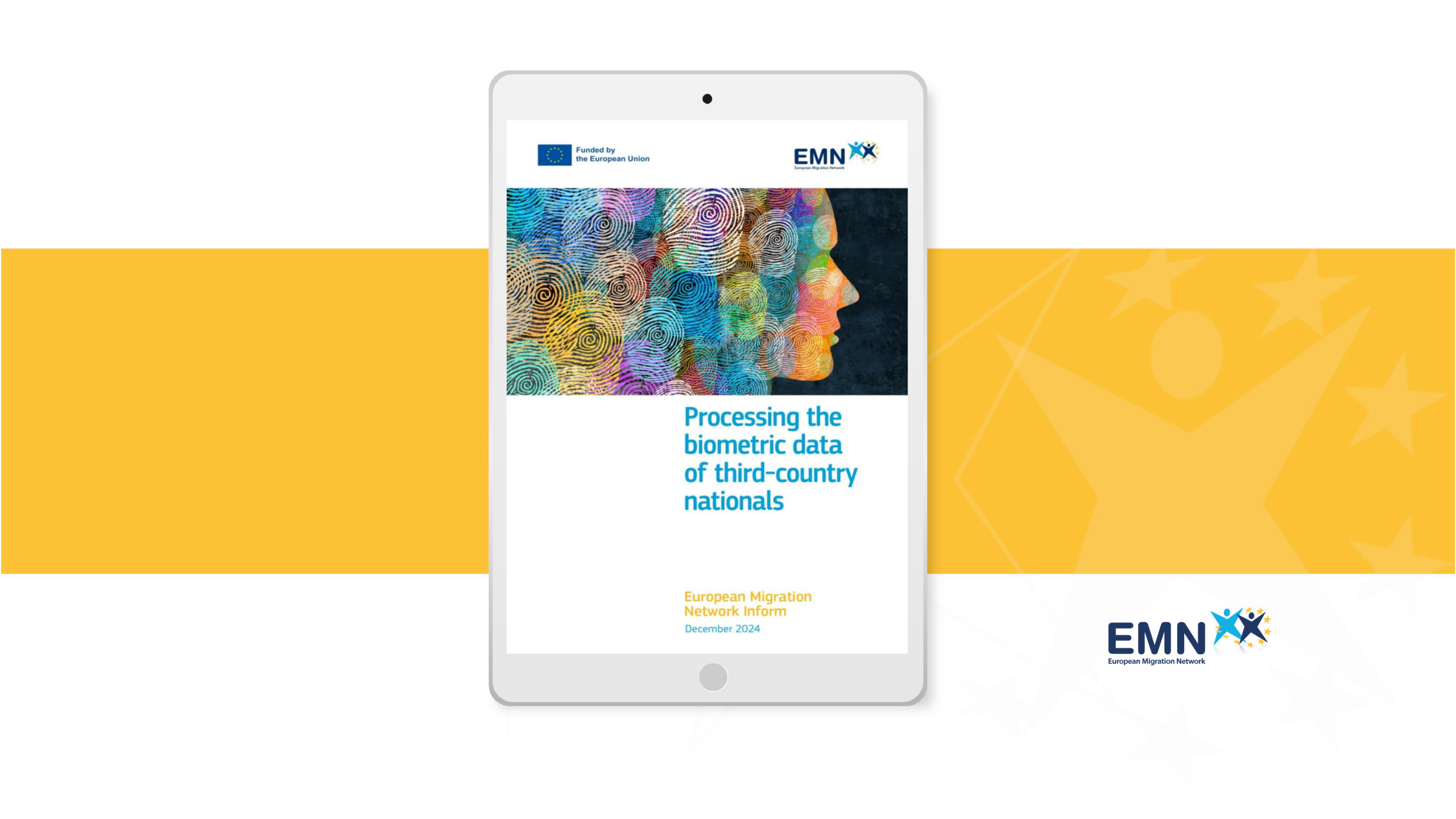The European Migration Network (EMN) inform explores national legislation and practices in the collection and processing of biometric data of third-country nationals in 24 EMN Member Countries and three EMN Observer Countries, in accordance with the requirements of national and European law.
Biometric data includes personal information obtained through technical processes related to physical, physiological, or behavioural characteristics of individuals. This allows for the unique identification or verification of that person with examples including facial images and fingerprint data.
In the responding EMN Member and Observer Countries, biometric data are commonly collected from individuals applying for international protection, long-stay visas or residence permits, and short-term visas. Biometric data is collected less often during returns, removals, or border crossings.
The most common purpose for collecting biometric data is to establish and verify an individual’s identity or the authenticity of travel documents. Data collection revealed that data collected in migration processes were in some cases also used for a secondary purpose in relation to law enforcement but in line with appropriate safeguards. For example, countries also allow the processing of biometric data for Schengen Information System alerts.
French translation of the Inform was kindly provided by EMN France.
For further information, please read the Inform attached below.

